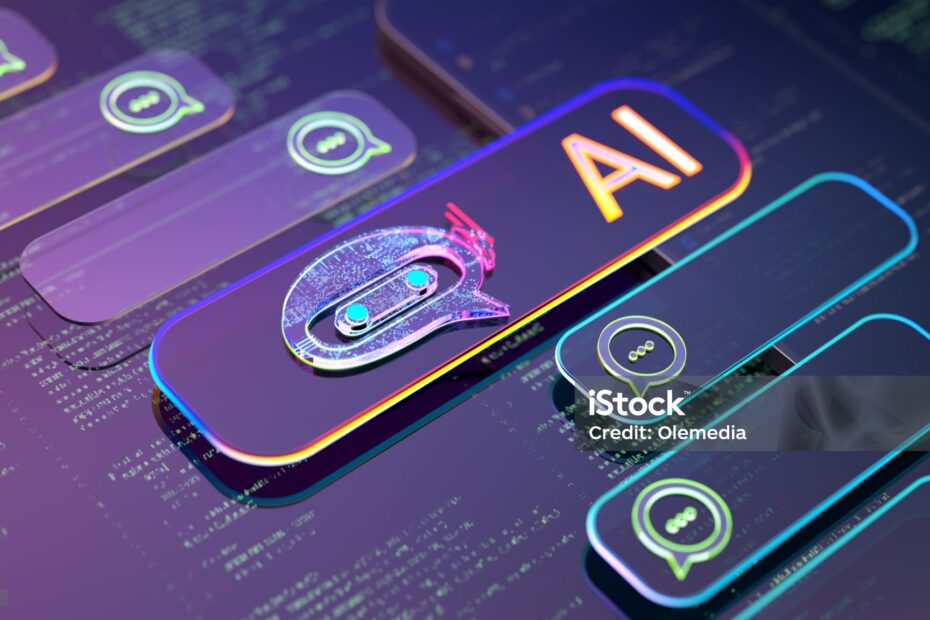Artificial Intelligence, or AI, is like a super-smart computer. It can do many things, like learning, solving problems, and even making decisions. Today, AI is changing the way we work. It is already used in many places, like offices, factories, and even hospitals. Let’s see how AI is impacting job roles and industries around the world.
What is AI?
AI stands for Artificial Intelligence. It is technology that can think, learn, and make decisions almost like humans. AI can do things faster and better in some cases, like finding patterns or analyzing large amounts of data. For example, AI can look through millions of emails to find important ones in seconds. This helps save time and effort!
How Does AI Help Different Jobs?
AI is making many jobs easier. Here are a few examples of how:
- In Factories
AI robots are used to put things together quickly and safely. They help make cars, phones, and other products. AI can also spot mistakes and fix them before they cause problems. - In Offices
AI can help with tasks like organizing data, sending emails, and answering questions. For instance, chatbots (AI-powered helpers) can answer common questions from customers, like what time a store opens. - In Hospitals
AI helps doctors find diseases faster by looking at X-rays and scans. It can also suggest treatments by checking past medical records. - In Farms
AI can tell farmers the best time to water crops, saving water and helping plants grow healthier. It can also detect when crops are sick.
These are just a few examples. Many people benefit from AI, as it helps make their work faster, easier, and sometimes even safer.
Does AI Take Away Jobs?
One big question people have is if AI will take away jobs. In some cases, yes. AI can do some tasks that humans used to do. For example, some factories now use robots to do work that people did before. This means some workers might lose their jobs because of AI.
But AI also creates new jobs. For example, we need people to design, fix, and take care of AI systems. We also need people to train AI by showing it what to do. New jobs can be created in fields like programming, AI training, and managing AI tools.
AI in Different Industries
Let’s look at how AI is changing some popular industries:
- Healthcare
AI helps doctors and nurses by checking medical records faster and finding health problems early. This saves lives and can make healthcare faster and more affordable. - Education
AI helps teachers by grading papers or helping students with lessons. Some learning apps use AI to make classes fun and interactive. It also helps students learn at their own pace. - Retail
Stores use AI to keep track of what customers like. It helps them suggest products, make sales, and keep popular items in stock. This helps businesses grow by making shopping easier. - Transportation
Self-driving cars and trucks are powered by AI. This means that in the future, there may be fewer drivers on the road. AI also helps plan routes to avoid traffic. - Entertainment
AI can suggest movies or songs based on what people like. Streaming services like Netflix and Spotify use AI to give people the best experience. AI even helps in making special effects in movies!
How Can People Prepare for AI Changes?
As AI continues to grow, people might wonder how they can keep up. Here are some tips to prepare for AI changes:
- Learn New Skills
Learning about computers, programming, and AI can help. Many schools and websites offer courses on these topics. - Stay Creative
AI can’t do everything. Creative jobs like writing, art, and music still need a human touch. Staying creative and thinking outside the box are helpful skills. - Work Together with AI
Many jobs will need both AI and humans. For example, a doctor can use AI to read an X-ray, but the doctor is still needed to make decisions. Learning how to work with AI is important.
What Jobs Can’t AI Do?
There are still some jobs that AI can’t do well. These jobs need skills that are very human, such as:
- Creative Work
AI can help, but it doesn’t have the imagination for creating new art, music, or stories. - Caring Jobs
Jobs that need kindness, like nursing or teaching young kids, are best done by people. AI can’t show real emotions or care. - Problem Solving
Complex problems, especially those involving people’s needs, still need human understanding.
These jobs may continue to need human workers, even as AI becomes more common.
The Benefits of AI
AI has many benefits that help both workers and companies. Some of these benefits include:
- Faster Work
AI can do tasks quickly, which means people have more time for other things. - Better Accuracy
AI can make fewer mistakes, especially with tasks that need careful attention, like calculations. - 24/7 Help
AI does not need breaks, so it can work at all hours, like answering customer questions online.
These benefits can make work easier, but it’s important to remember that not everything can or should be done by AI.
What’s Next for AI?
AI is still growing and changing. In the future, it may be able to do even more. Here are some ideas for what might come next:
- More Personal AI
AI might help people in more personal ways, like organizing their daily tasks or reminding them to take breaks. - Safer AI
Developers are working on making AI safer and more reliable. This way, AI can avoid mistakes that might cause harm. - AI in More Jobs
AI might become a part of many more jobs, like helping teachers, firefighters, and even scientists. This could make jobs easier and safer. - Helping the Environment
AI could also help with climate change by finding ways to save energy and reduce waste.
These are exciting ideas, but it’s still important to have humans in control.
Is AI Good or Bad?
Some people think AI is great because it can make life easier and jobs faster. Others worry about losing jobs to AI or it making mistakes. In reality, AI can be both good and bad, depending on how it’s used. Here are some points to consider:
- The Good: AI can make work easier, faster, and even create new job opportunities.
- The Bad: AI can sometimes replace jobs, and if it makes mistakes, it can cause big problems.
The key is to use AI responsibly and make sure it helps, not harms, society.
Conclusion
AI is changing job roles and industries in many ways. From factories to hospitals, it helps make work faster, easier, and sometimes even safer. AI can take over some tasks, but it also creates new jobs that people need to learn. While AI will keep growing, there are still many jobs that only humans can do.
By learning new skills and working with AI, people can make sure they are ready for the future. Whether AI is good or bad depends on how we use it. It’s important to stay informed, so AI can be a tool that helps everyone.

